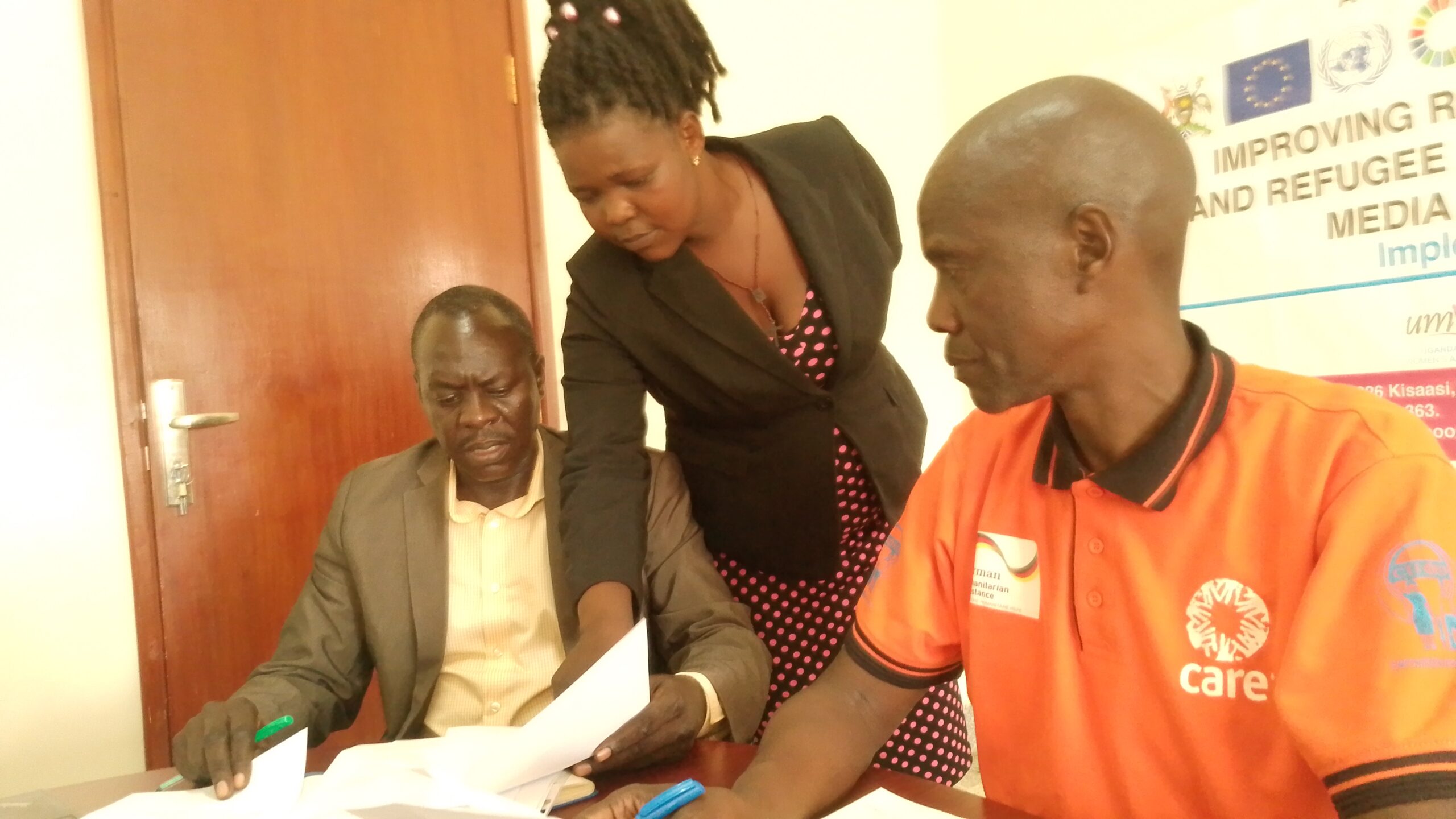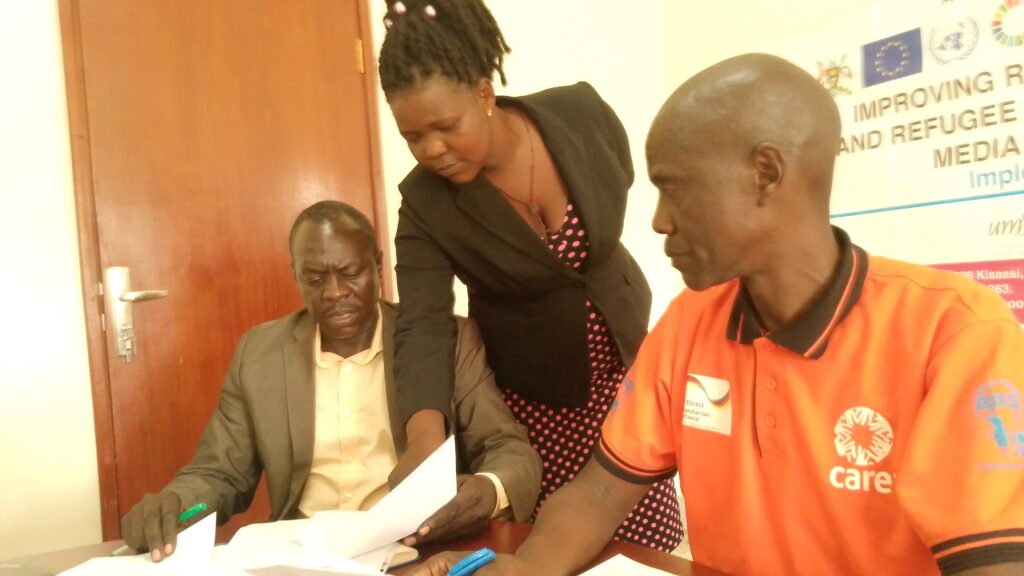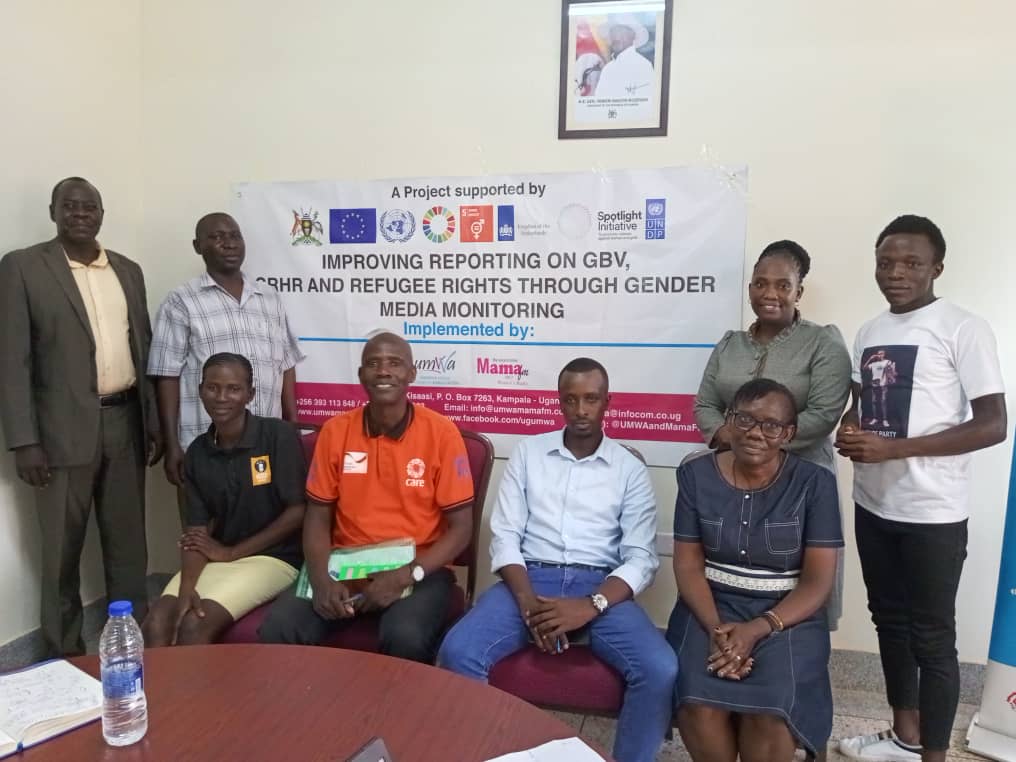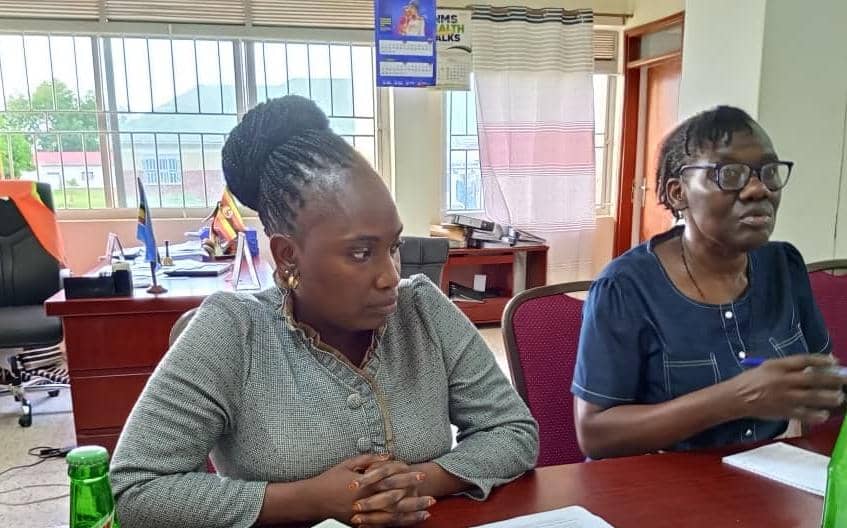
 Mama FM
Mama FM

 Mama FM
Mama FM
25 July 2025, 10:29 am

By Byamukama Alozious
The Uganda Media Women’s Association (UMWA) has held an inception meeting with stakeholders in Madi-Okollo District to introduce a media monitoring project aimed at improving reporting on Gender-Based Violence (GBV), Sexual and Reproductive Health Rights (SRHR), and refugee rights.
The project, implemented in partnership with the United Nations Development Programme (UNDP), seeks to raise awareness of gender-equitable social norms, attitudes, and behaviours that prevent GBV and promote SRHR in schools, communities, institutions, and refugee settlements across selected districts including Lamwo, Kasese, and Arua, among others.
Speaking during the inception meeting in Madi-Okollo, Arubaku Kenneth, the District’s Principal Assistant Secretary, stressed the importance of collaborative efforts in addressing GBV.
“We are a refugee-hosting district, and we are pleased to see partners like UMWA coming on board to help us tackle GBV, refugee rights, and SRHR through media monitoring,” he said.
Doreen Sampa, a Human Rights Specialist with UMWA, highlighted the vital role of the media in amplifying information on GBV, SRHR, and refugee rights.
“The media can hold duty bearers accountable, give hope to survivors, and promote social justice,” she said.
However, she acknowledged the challenges journalists face when reporting on GBV, such as limited skills, lack of data, and transport difficulties in remote areas.

Kasasira Taban, one of the security overseers in Madi-Okollo District, urged UMWA to remain committed to the objectives of the project.
“Some NGOs come in the name of change but end up doing otherwise,” he said.
The project aims to enhance media reporting on GBV, SRHR, and refugee rights through gender-sensitive media monitoring and the recognition of best practices by May 2026.
According to the Uganda Police Force’s Annual Crime Report 2024, cases of Gender-Based Violence decreased by 16.3%, from 14,846 in 2023 to 12,424 in 2024. However, sexual violence remains a major concern, with 1,607 rape cases and 12,317 cases of defilement reported.
Women and girls continue to bear the brunt of GBV, particularly in defilement cases, with 12,009 female victims recorded, compared to 308 male victims.
Clothilda Babirekere, a gender officer, stated that UMWA hopes the media monitoring project will contribute to a reduction in GBV cases and improved SRHR and refugee rights in Uganda.
“GBV, refugee rights, and SRHR are social issues that significantly affect women. As we monitor the media, we call on district leaders to collaborate and support one another,” she said.

The project will run for 18 months, with the findings disseminated to the project districts to enable authorities to take appropriate action. Individual journalists who demonstrate outstanding performance will also be recognised.
By promoting responsible media reporting, UMWA hopes to contribute to a reduction in GBV cases and to the improvement of SRHR and refugee rights in Uganda.